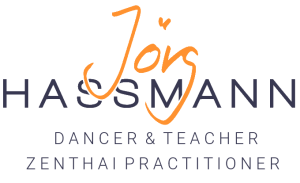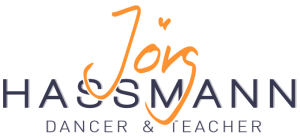Workshops for experienced Contacters only – How exclusive should we be?
CI workshops for advanced contacters. Intensives on a CI festival – level: intermediate/ advanced. To follow this workshop a basic knowledge of Contact improvisation is required …
How open are we in this heartfelt and open Contact Community? Is it ok to have those exclusive events, dividing the practitioners into beginners, intermediate and advanced contacters? What are the criteria? Who decides, which experience level someone has?
I might not make many friends with what I am writing here: I believe it is very important to have those exclusive workshops, labs and gatherings, despite all the injustice that is impossible to avoid.
In my first ten years of teaching dance improvisation and CI I was very much looking after new comers and people with less experience. How can I make them feel welcome? How to integrate them in the group? Which material is accessible for them, what would be too much? I always wished to find ways that people from all levels would get enough out of a class. I wanted to make everyone happy. I wanted to be loved by everyone. But at some point I noticed, that I lost some of the more experienced people. People, who invested a lot in the practice didn’t feel fed by my teaching or by the frame I was providing.
I started realizing, that people who spend a couple of years with CI, who passed the first phase of ‘knowing most things’ by finding a deeper interest, that those people are the ones who keep things going. People with a commitment to the form, who survived phases of boredom and frustration can bring an attitude of self responsible learning into a space. They enrich the practice with their ability to perceive, share and enforce more subtleties.
We need to take care of those people. They are a core part of the engine, that keeps CI developing.
In my experience the most urgent need for these kind of people is not more exciting and challenging material. I like the idea of ‘CI essentials for advanced contacters’. In the basic principles we can find the starting point for a journey into less predictability and more risk. Some advanced tricks can bring some excitement and motivation into the space, of course. But the way and quality of how people connect decide about, how far a research can go. How far people can take the dance.
What are my criteria for advanced contacters?
There is the CI specific technical level. A few landmarks for me are:
- narrow base as the ‘under-dancer’: in pelvis and shoulder lift situations the feet stay close together (not much wider than the pelvis), to be able to bring the weight on one leg in order to turn and to make steps. Or lets say to keep the dance moving.
- Being balanced on top: as the ‘over-dancer’ knowing when I am balanced so that I can dive, hang or fall in many different directions. I guess around 90% of the contacters habitually and unconsciously always hang towards their feet.
- Vacuuming – Following through: Knowing in every moment, which rotation direction moves me more into the support and which does the opposite (Inhibiting natural escapist habits). Having always the option to stay dependent on the partner with shared weight – especially in challenging situations.
- Making and reading clear invitations: being familiar with the natural rhythm of down and up to invite or to get a lift.
- Hooking: instantly knowing the first moment when I can unlock a hook
The level of self-awareness
- fear-responses: Knowing and noticing when my body articulates fear (, which is usually much before the emotional fear response kicks in): stopping to breathe, arching/ contracting, collapsing, escaping
- Knowing and being curios about my habits: Am I aware if I am more at home with initiating or following, high or low body tone, getting stuck in perfectionism or giving up in challenges, talking too much – being shy to express myself …
- ability to deal with frustration: Do I have the ability to keep working, when I get bored or over challenged? How do I negotiate between sticking to versus bending the rules?
The level of communication
- being in contact: Seeing the other one. Hearing the other one. Letting go of predetermined thoughts, plans and pathways.
- Being honest with myself
These criteria are landmarks or themes to look at not boxes to tick off. The most imporatant ones for my final decision are the ones around self-awareness and communication. It can be very beautiful to have a few people with clearly less CI experience and technical knowledge in an advanced CI workshop, as long as those people are clear at acknowledging their limits and are rather easy in dealing with frustration.
How to communicate these criteria?
In my practice of organizing workshops for more advanced contacters it is definitely not enough to trust people’s expressed self estimation about their level. Most people learn more when they are working with more experienced partners. That’s why good beginners like to sneak into advanced workshops. And sometimes a self estimation is ‘just wrong’. Some overestimate their abilities other underestimate themselves.
I usually aks people about
- their motivation to join the workshop
- where they see their strengths and weaknesses in their practice
- when they started, with who they learned, how regular they practice, which other related disciplines inform their dance
Just by seeing if people are prepared to make an effort, to take time to see where they are in their practice, shows quite a lot about their learning attitude – I think. It is often pretty obvious if someone wants to impress me or dives into a process of self-reflection, which is an essential part of learning. The ability to ask substantial questions, to be clear with desires and to show weaknesses is a major support for an individual learning experience and powerful support for the rest of the group.
The downside is, that I need to take time to read everything and sometimes to write back, when I have questions or doubts. This is a dialogue. We both want to find out if joining the workshop makes sense for this person. Being much less experienced than everyone else can create a lot of stress, the constant question of ‘Am I good enough?’ doesn’t help the learning and the dance and neither any of the working partners.
But of course, some people can be very articulate in the dance and work but struggle with writing. Usually people express that and I take it into account.
If I don’t know someone at all, it is extremely helpful to get a short feedback from someone I trust and know. Then I contact teachers that the person mentioned or ask around my own buddies, who see more people than I do on festival and bigger events.
I try to be as honest as possible. If necessary and possible I’d tell the person, where I got that feedback from. It can be balance act. I might send the wrong people away and accept others who are not really fitting the proposed frame. I might loose great people for ever.
Sometime I feel, that this is more work than the actual teaching.
I see teaching sometimes as trying to not stand in people’s way. Setting the right tone, creating a learning atmosphere. The main things happen through the participants own investigation. In that sense this pre-dialogue with people from an advanced workshop, is an integral part of the workshop itself. It is setting a tone.
In the long run all this preparation built up a reputation of my work. People trust, that if a workshop with me is announced as ‘advanced’ they will get together with mainly advanced contacters. And less and less people with only little experience apply.
A few ending thoughts:
Is this elitist? Yes. Should this be part of the open hearted CI world? I think yes. These events nurture the people who develop the form. The information gets fed back into the broader community.
I am happy for my experiences in a more competitive environment of Capoeira (regional). Beginners and more experienced people were mostly working together. But sometime within a class the levels were separated. And some classes were only for more experienced people. I think in CI we sometimes get lost in political correctness and over-caring. We are not equal. Not all voices have the same weight. That’s reality. And it seems healthier to me to acknowledge that honestly than to get confused in hidden hierarchies and double bind situations, when words and actions are not matching.
Is Contact Improvisation for everyone?
There is a general question in the CI community. How open are we actually to ‘everyone’? And how open do we want to be?
Organizing events for advanced contacters is a lot of work. This can’t and shouldn’t be the regular procedure. These are special events – luxury. I am glad to have assistants, who know my work well enough, to help me with this job.
I see classes for people who have at least a basic understanding of the form. In those I would still bring quite an awareness to the more experienced people. When the work is based on generosity, listening and accepting limitations people with less experienced can cope pretty well with material that is ‘too advanced’. We don’t need to make everyone happy. Beginning something includes a lot of failing, which is not always fun. But if people are really interested and find and understanding for their struggles they will get through those challenges. And if not, then it might be ok to do something different.
I see it as extremely important to have many formats, which are truly open for all levels, who directly invite and welcome beginners. Creating frames for people with a shy interest in the form to get a first taste and to maybe fall in love with it.
And – reminded regularly by Heike Pourian – the knowledge we gained through dancing and teaching CI should be shared way beyond the CI community. I very much support the idea that CI doesn’t become an escapist movement, that makes us survive our ‘real’ life better, instead of making changes happen. What we developed in the CI practice is strongly needed in other areas of our societies. I have to admit, this is not my strong part, but I really see it’s necessity and try to be available for that.

